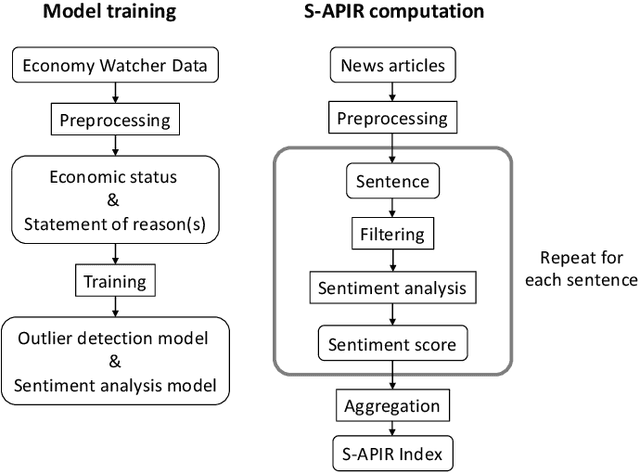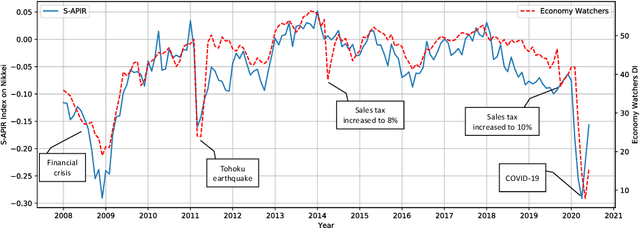News-based Business Sentiment and its Properties as an Economic Index
Paper and Code
Oct 20, 2021



This paper presents an approach to measuring business sentiment based on textual data. Business sentiment has been measured by traditional surveys, which are costly and time-consuming to conduct. To address the issues, we take advantage of daily newspaper articles and adopt a self-attention-based model to define a business sentiment index, named S-APIR, where outlier detection models are investigated to properly handle various genres of news articles. Moreover, we propose a simple approach to temporally analyzing how much any given event contributed to the predicted business sentiment index. To demonstrate the validity of the proposed approach, an extensive analysis is carried out on 12 years' worth of newspaper articles. The analysis shows that the S-APIR index is strongly and positively correlated with established survey-based index (up to correlation coefficient r=0.937) and that the outlier detection is effective especially for a general newspaper. Also, S-APIR is compared with a variety of economic indices, revealing the properties of S-APIR that it reflects the trend of the macroeconomy as well as the economic outlook and sentiment of economic agents. Moreover, to illustrate how S-APIR could benefit economists and policymakers, several events are analyzed with respect to their impacts on business sentiment over time.
 Add to Chrome
Add to Chrome Add to Firefox
Add to Firefox Add to Edge
Add to Edge